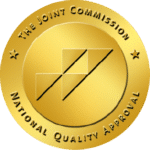
Image Source: FreeImages
Mental illness impacts the lives of millions of Americans. As many as one in five adults experiences some form of diagnosable mental illness in any given year. The National Institute of Mental Health estimates that one in 25 adults will be diagnosed with bipolar disorder at some point in their life. This is a serious condition with symptoms that can fluctuate between two opposite poles. Although there are no magic words or phrases to speed up the recovery process, there are multiple ways that you can support your loved ones and help them get through this difficult time. In our blog post today, we’ll walk you through what is Bipolar Disorder. Some key points about its prevalence, and a list of potential treatment options for those who suffer from it.
What is Bipolar Disorder?
Bipolar disorder is a mood disorder that causes unusual shifts in a person’s mood, energy, and ability to function. Bipolar disorder is also known as manic-depressive disorder. This is a condition in which mood shifts happen rapidly between extreme sadness and extreme happiness. Bipolar Disorder is a mental health condition that causes shifts in mood, energy, and ability to function. These shifts happen rapidly between extreme sadness and extreme happiness.
– The Mood Cycle of Bipolar Disorder two distinct phases of bipolar disorder are often referred to as the “up” and “down” cycles. The first is the manic or hypomanic phase when the person with bipolar disorder experiences an extreme high that can be compared to the effects of stimulants like cocaine or crystal meth. The second phase is the depressive phase when the individual experiences abnormally low mood that can lead to a very dark and depressed state of mind.
– The Prevalence of Bipolar Disorder According to the National Institute of Mental Health, approximately one in five people will experience a diagnosable mental illness of some kind in any given year. Bipolar disorder is considered to be at the higher end of that spectrum, with as many as five percent of the general population experiencing it at some point in their life.
Treatments for Bipolar Disorder
While there isn’t a one-size-fits-all solution for bipolar disorder, there are treatments that can help you and your loved ones cope with and manage their symptoms.
– Medication – Although they aren’t a cure, certain mood-stabilizing medications can help reduce the intensity and frequency of manic and depressive episodes.
– Therapy – On the other hand, therapy can help you understand your condition and work through the emotions and issues that might be contributing to your symptoms.
– Self-Care – Keep in mind that you shouldn’t solely rely on medication and/or therapy alone. Make sure to incorporate healthy lifestyle practices like sleep, diet, and regular exercise into your daily routine.
How Mental Health IOPs Can Help
Mental health IOPS or intensive outpatient programs are a great way to help loved ones suffering from a mental illness such as bipolar disorder. They are typically recommended for those with a history of multiple hospitalizations or complex mental health issues who need a higher level of support than what is available in a traditional outpatient program.
– Structure – Bipolar disorder tends to interfere with the daily routine of the sufferer, and as a result, their ability to live a normal life. With this in mind, IOPS programs are structured so that the patient knows what to expect daily, which helps take away some of the uncertainty.
– Medication Management – Many IOPS programs offer assistance with medication management. This includes bringing the person to doctor’s appointments, providing reminders to take their medications, and helping them understand their diagnosis and the medications they’re taking.
Bottom line
Bipolar disorder is a serious mental illness that requires treatment and support. There is no magic cure for the condition, but there are treatments that can help you and your loved ones cope with and manage the symptoms. When it comes to treating bipolar disorder, the best approach is to seek out a conversation with your doctor. They can help you determine which treatment option is best for you based on your specific symptoms and medical history. If you or someone you love is experiencing symptoms of bipolar disorder, now is the time to talk to a medical professional. With the right treatment, you can prevent a full-blown episode from taking over your life.
__
Clear Mind Treatment is a 45-90 day program specialized in treatment resistant depression, anxiety, bipolar disorder, and PTSD using traditional psychotherapy and cutting edge technologies, like Ketamine, TMS, EMDR. We are a big fan of neuroplasticity and meditation and believe that when you can change your thought and feeling patterns, you can change your life. We take most PPO insurance, like Cigna, United Health, Aetna, MHN, medicare, and AHCCES in Arizona. Give us a call anytime 310-571-5957 www.clearmindtreatment.com









